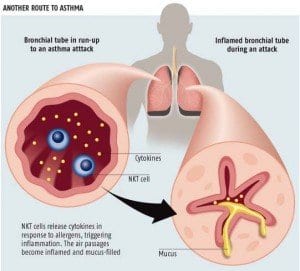 A study released Monday suggests that children who have been diagnosed with diabetes are at increased risk of developing asthma. In addition, blood glucose regulation seems to be more difficult for children who have both asthma and diabetes. The study was published in the journal “Pediatrics.”
A study released Monday suggests that children who have been diagnosed with diabetes are at increased risk of developing asthma. In addition, blood glucose regulation seems to be more difficult for children who have both asthma and diabetes. The study was published in the journal “Pediatrics.”
The study’s researchers analyzed data from 2,000 children with diabetes, aged 3 to 21. Eleven percent of them also had asthma; the rate of asthma among non-diabetic children and young adults is around 9 percent. The reason for the difference in asthma rates was not immediately clear, according to the researchers.
The children with Type 2 diabetes were also shown to be more likely to have asthma than those with Type 1 diabetes. Sixteen percent of the children with Type 2 diabetes had asthma compared to 10 percent of the children with Type 1 diabetes.
Type 1 diabetes occurs more often in children. It results from irregular function of the autoimmune system, which destroys the pancreatic beta cells responsible for producing insulin, the hormone that helps move glucose from the blood and into the body’s cells so that it can be used for energy. Their lack of insulin, known as insulin deficiency, means that Type 1 diabetics have to take injections of insulin or use an insulin pump to deliver the hormone and ensure that their blood sugar levels do not rise too high.
The children and young adults involved with the study who had both Type 1 diabetes and asthma were more likely to demonstrate poor blood sugar control compared to those who did not have asthma: 15.5 percent for children with both diseases compared to 9 percent for children who only had diabetes.
For the purposes of the study, poor blood sugar control was defined as demonstrating a hemoglobin A1C level — a measure of blood glucose control over long periods of time — of over 9.5 percent. The ideal hemoglobin A1C levels for adults are below 7 percent, while children could be healthy with levels of up to 8.5 percent.
According to Mary Helen Black with Kaiser Permanente Southern California, the correlation between diabetes and higher asthma rates points to obesity as a risk factor for the development of asthma. “It’s pretty well-established that there’s an obesity-asthma connection,” said Black. She also believes that there is a “real biological connection” between diabetes and asthma, which may work together to make effective blood sugar control more difficult.
Previous research has shown an increased risk of dips in lung function in people with poorly-controlled diabetes, so the connection has some precedent. However, the mechanisms behind the relationship are unknown.
Black commented, however, that an additional chronic illness may simply make it more difficult for diabetes to control their blood sugar. “It can be incredibly challenging to manage both conditions,” she said.
The research team did find that children and young adults with both diseases who were taking prescription asthma medication displayed better blood sugar control.
Leukotriene modifiers, a type of asthma medication sold as Accolate, Zyflo, and Singular, seemed to be especially helpful in controlling blood sugar: study participants taking those medications showed a less than five percent incidence of poor blood sugar control, compared to 30 percent of Type 1 diabetics who were on asthma medication.
The researchers commented that they aren’t sure whether the asthma medication plays an active role in regulating blood sugar. According to Black, it may just be that kids with better asthma control are more likely to have better diabetes control as well.